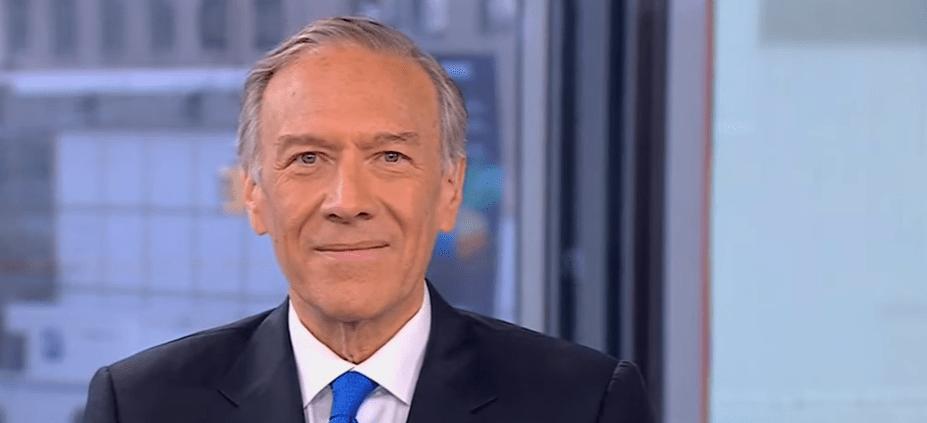
Mike Pompeo’s physical metamorphosis sparked a national conversation due to the questions it raised as well as its visual impact. Only months after leaving office, the former Secretary of State, who was more well-known for his incisive diplomatic rhetoric than his exercise regimen, shocked political circles by appearing to have lost over 90 pounds. Although he explained that the change was as easy as cutting carbohydrates and spending 30 minutes a day working out in his basement, many have found his story to be strangely lacking, like a puzzle with some important pieces missing.
He told the New York Post that he constructed a home gym with dumbbells and an elliptical machine. He reportedly worked out five or six times a week without the assistance of dietitians or trainers. His secret weapon, he said, was a refined diet that substituted egg whites and turkey bacon for high-calorie comfort foods. The magnitude of his progress—losing 90 pounds in just six months—has drawn intense attention from fitness experts and medical professionals, who find the figures difficult to reconcile with standard weight loss physiology, despite the modesty of his claims.
| Mike Pompeo: Personal and Professional Profile |
|---|
| Full Name: Michael Richard Pompeo |
| Date of Birth: December 30, 1963 |
| Age: 61 |
| Height: Approximately 5 ft 11 in |
| Weight Loss: Over 90 pounds in 6 months |
| Profession: Politician, Attorney |
| Key Roles: U.S. Secretary of State (2018–2021), CIA Director (2017–2018) |
| Education: West Point (1986), Harvard Law School (J.D.) |
| Spouse: Susan Pompeo |
| Children: One son |
| Reference: Wikipedia – Mike Pompeo |
Clinically speaking, losing 15 pounds a month is almost aggressive and even dangerous, especially for someone over 55. To guarantee long-lasting improvement, doctors usually recommend a weekly rate of two to four pounds. According to nutritionists, it’s hard to believe Pompeo’s version without further information. However, the former Secretary appears to be stepping up his efforts, portraying his accomplishments as the result of hard work and discipline rather than outside assistance—a narrative that strikes a deep chord with some audiences.
Pompeo appeals to a larger American culture that frequently values individualism over science by advancing a narrative based on personal determination. His portrayal is reminiscent of the „bootstrap” narrative that political leaders have relied on for decades, evoking the cowboy charm of Ronald Reagan or even the cleared-brush photo ops of George W. Bush. What is the subtext? This man is in charge and prepared to take on new tasks, like a campaign trail.

However, there is a more subtle cultural implication hidden beneath the political calculus. Unrealistic standards are fostered by the unquestioning acceptance of drastic body changes, particularly among male politicians. Without fully comprehending the metabolic, psychological, or medical complexity of weight loss, it encourages others to pursue similarly dramatic results. Although Mike Huckabee, Bill Clinton, and Chris Christie all had very public health journeys, Pompeo is by no means the first to use health as a badge of fitness for leadership. However, what makes Pompeo’s case unique is its opacity.
Notably, he denied rumors that he had an underlying medical condition or was having bariatric surgery. He even made a joke about having foot surgery for an unrelated toe problem in an interview with Fox News. However, many, including seasoned fitness trainers, have questioned the viability of his methods due to the discrepancy between his claims and the rate at which he has lost weight. Milo Bryant, a veteran, clarified that in his thirty years of training, he had never witnessed someone lose that much weight with just diet and exercise adjustments.
The way Pompeo’s metamorphosis reflects a political tactic rather than a wellness initiative is especially intriguing. Visible change can function as both a metaphor and a message in the post-Trump era, where image frequently takes precedence over ideology. A smaller frame conveys vitality. Focus is telegraphed. This shift may be more than just a personal one for voters who are used to judging candidates more on their charisma than their ability.
Fitness has evolved into a political messaging tool over time. Vladimir Putin’s shirtless photo ops, Mitt Romney’s marathon runs, and Barack Obama’s basketball court routines all serve as examples of how a person’s physical appearance influences public opinion. The optics of losing 90 pounds may have two functions for Pompeo, who is viewed as a possible candidate for higher office: public preparedness and personal rejuvenation.
However, not every comment has been positive. Advocates for public health are concerned that oversimplifying such significant health changes could jeopardize legitimate wellness initiatives. The story runs the risk of turning into a risky model for people who respect Pompeo but do not have his advantages if the mental, emotional, and financial resources required are not acknowledged. Cutting carbs is one thing. Having the time, space, and independence to completely rewire a lifestyle is another.
Pompeo’s followers nevertheless find inspiration in his journey. He has come to represent hope for middle-aged conservatives, particularly men who are dealing with health issues. College blogs, wellness podcasts, and lifestyle websites have started to analyze his purported techniques, frequently combining his metamorphosis with advice on elliptical training, ketogenic diet, and intermittent fasting. His prominence is drawing attention in health-related fields outside of politics, despite skepticism.
And a fascinating contradiction can be found here. One could argue that Pompeo’s story is unrealistic. Conversely, it is aspirational. Even a weight loss story becomes a vehicle for broader discourse—about authenticity, masculinity, ambition, and control—in a polarized media environment where facts are frequently framed by ideology.
It’s unclear if his journey was made possible by unrecognized interventions or by self-discipline alone. However, it is undeniably true that Pompeo has changed his image. Through the silent power of image, not through speech or policy. His narrative is more about influence than health. And that might be the most strategic move of all for a man with diplomatic experience.

